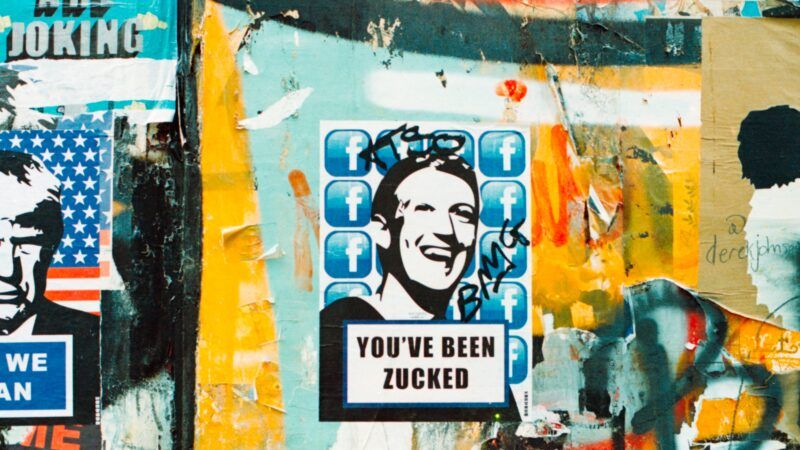Oversight Board Upholds Facebook's Initial Suspension of Trump, but Says Company Must Reassess
"At the time of Mr. Trump's posts, there was a clear, immediate risk of harm."

Facebook was initially justified in suspending former President Donald Trump's account, the social media company's Oversight Board has ruled.
The indefinite nature of the suspension is "not appropriate," however, and Facebook must conduct a review "within six months" to explain why Trump is still not allowed back.
The Facebook Oversight Board's decision was released Wednesday morning. The board consists of 20 members, chosen by the company to revisit controversial moderation decisions. They tend to have free speech backgrounds—Cato Institute Vice President John Samples is one—and are empowered to expand the board by choosing up to 20 additional members. Facebook CEO Mark Zuckerberg has agreed to abide by whatever decisions they reach, though he is not legally required to do so.
Thus far, the board has shown a willingness to overrule Facebook and defend the existence of provocative speech on the platform. The board previously voted to restore the account of a user in Myanmar who had posted anti-Muslim bigotry at a time when that country's Muslim minority—the Rohingya—face widespread state-sanctioned violence and oppression.
Not so for Trump: In its decision, the board concluded that the former president's two posts on January 6 "severely violated" Facebook's rules prohibiting support of violence:
The Board found that, in maintaining an unfounded narrative of electoral fraud and persistent calls to action, Mr. Trump created an environment where a serious risk of violence was possible. At the time of Mr. Trump's posts, there was a clear, immediate risk of harm and his words of support for those involved in the riots legitimized their violent actions. As president, Mr. Trump had a high level of influence. The reach of his posts was large, with 35 million followers on Facebook and 24 million on Instagram.
Given the seriousness of the violations and the ongoing risk of violence, Facebook was justified in suspending Mr. Trump's accounts on January 6 and extending that suspension on January 7.
The board did take issue with the indefinite aspect of the punishment: Facebook's stated options for moderating content are "removing the violating content, imposing a time-bound period of suspension, or permanently disabling the page and account." Since the company did not choose any of these options, it is essentially handling Trump's account differently than all other ones.
"In applying a vague, standardless penalty and then referring this case to the Board to resolve, Facebook seeks to avoid its responsibilities," wrote the board. "The Board declines Facebook's request and insists that Facebook apply and justify a defined penalty."
Zuckerberg might counter that he created this institution specifically for the purpose of outsourcing controversial moderation decisions to a third party, and that avoiding ultimate responsibility was the entire point. That the board is interpreting its role this narrowly and instead forcing Facebook to justify its indefinite suspension of Trump shows that no one even tangentially involved in content moderation wants to be on the hook for the kinds of calls that tend to make people furious.
The board's decision also recommends that Facebook "rapidly escalate content containing political speech from highly influential users to specialized staff who are familiar with the linguistic and political context. These staff should be insulated from political and economic interference, as well as undue influence." This would probably constitute an improvement—at present, the platform often relies on cues from partisan media figures when deciding to turn down the viral reach of certain pieces of content, which has led to disaster.
Trump, for his part, had argued in a statement to the board that his Facebook posts had absolutely no connection to the January 6 riots, that all of his "genuine" supporters behaved in a law-abiding way, and that "outside forces" were ultimately responsible, which is frankly ridiculous.

Show Comments (56)